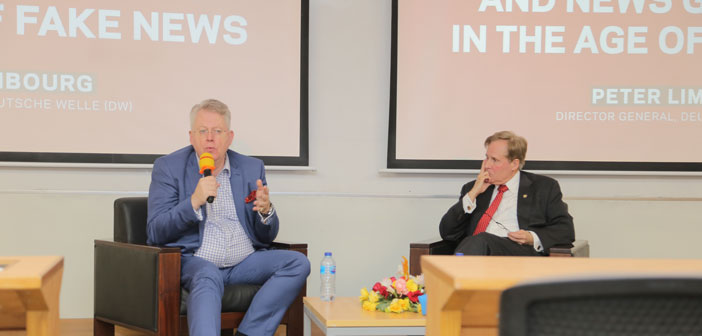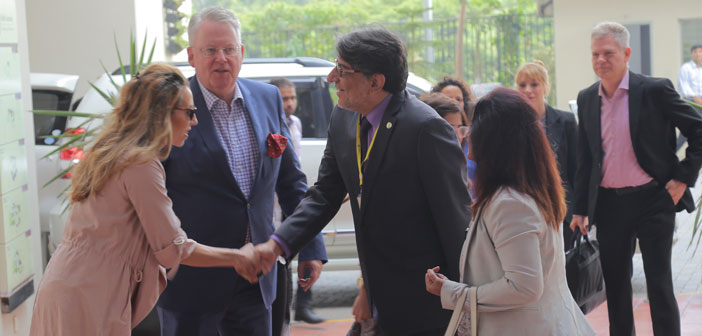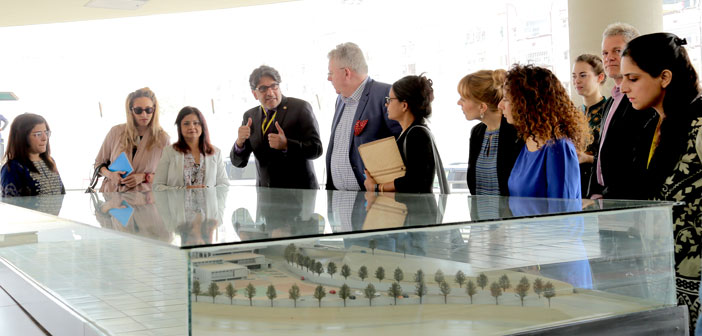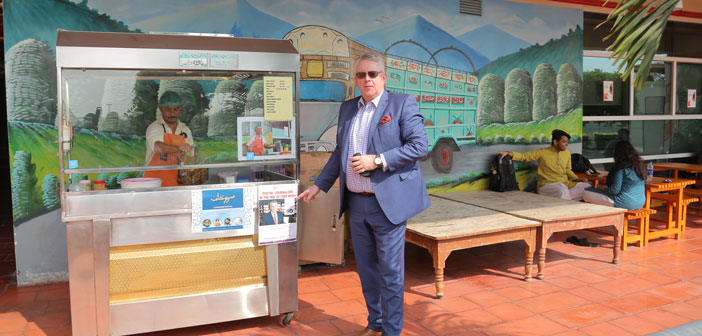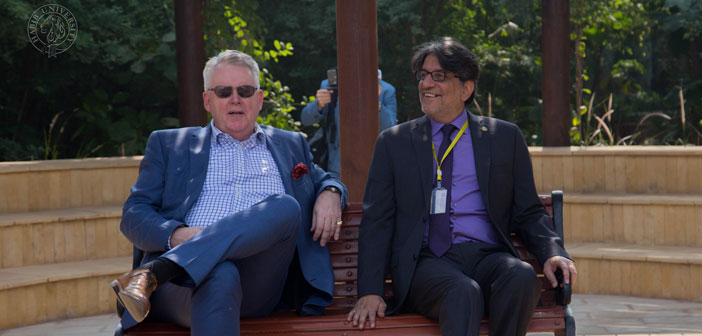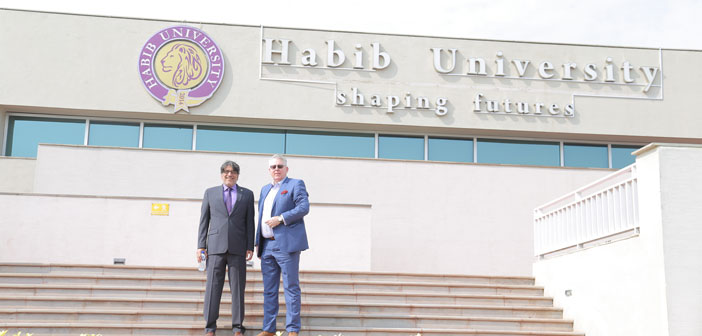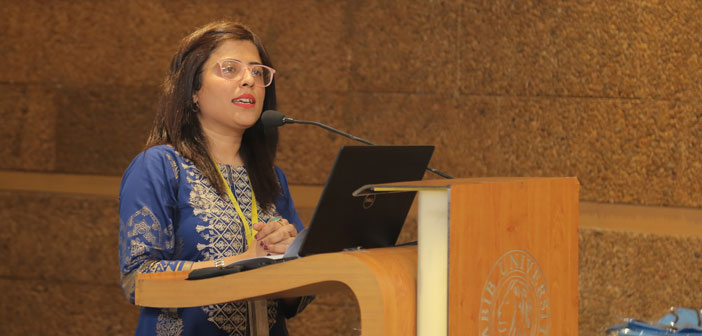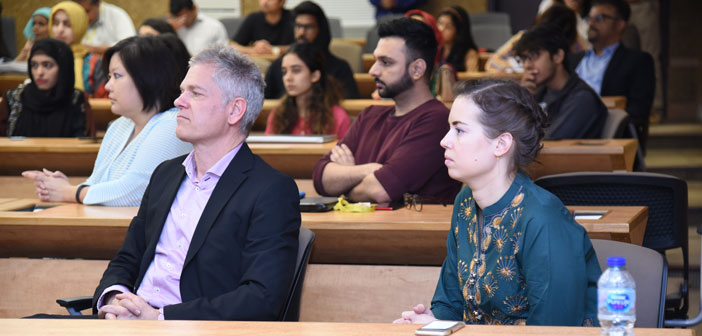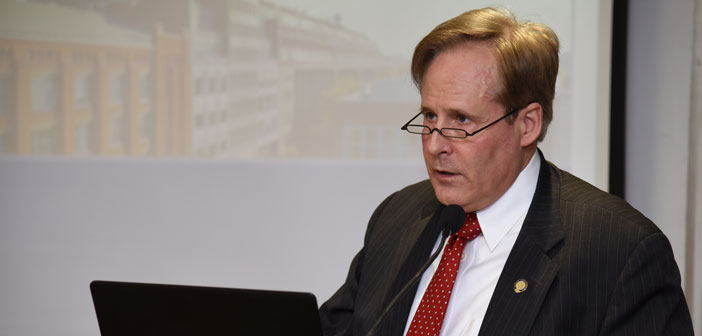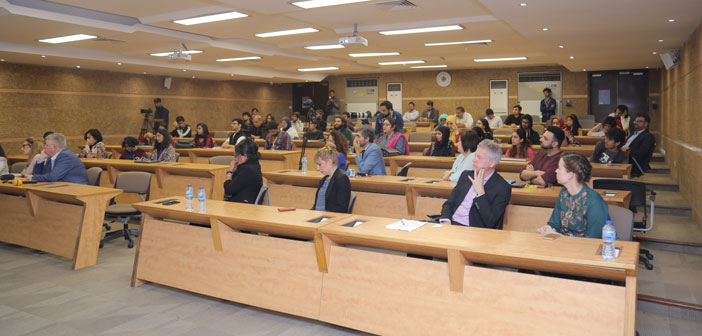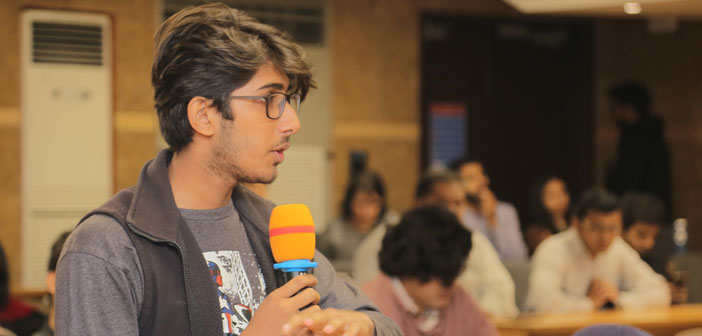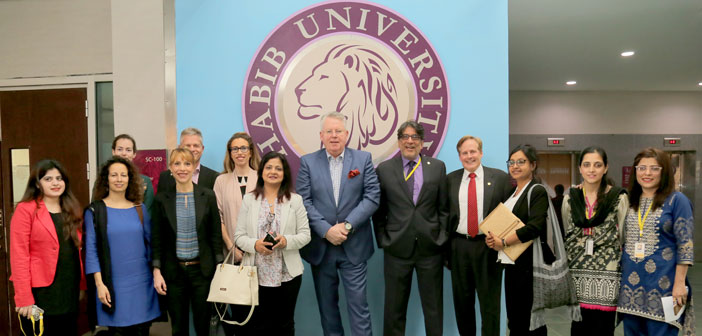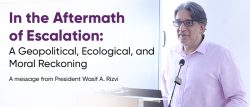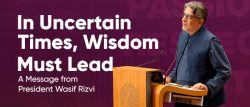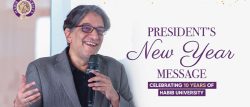In a great distinction for Habib University, Deutsche Welle TV’s Director General, Mr. Peter Limbourg was welcomed on campus on November 22, where he delivered a lecture on the subject on ‘Digital Journalism in the Age of Fake News.’
This is the first time the Director General of a leading international news organization has spoken at a university in Pakistan. Mr. Limbourg is a veteran broadcast journalist with over three decades of experience and was appointed the DG of Deutsche Welle TV in 2013, a position that he has held ever since.
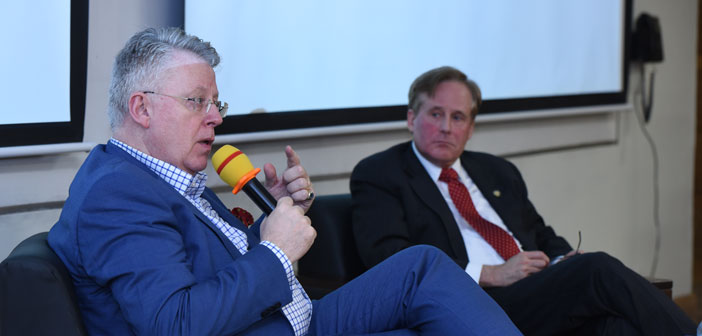
The lecture at Habib’s Soorty Lecture Hall — moderated by HU’s Vice President Academic Affairs and Dean of Faculty, Dr. Christopher Taylor — was packed with students and faculty members eager to learn about Mr. Limbourg’s own experiences as a journalist, and how he sees social media and the proliferation of ‘fake news’ as having a corrosive effect on news gathering.
Having seen the transformation of journalism from print to television and now digital media, Mr. Limbourg drew upon his vast experience to inform the gathering in which he spoke about the changing face of the media.
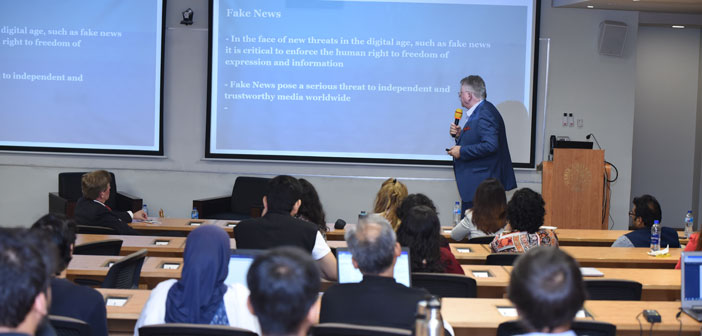
The DW TV Director General said that social media has had a transformative effect on the spread of news, making global events accessible to literally everyone. However, he warned that this has also had the negative effect of the spread of unverifiable news, which goes against the very basic tenant of journalism that of checking facts. “We need to strengthen the ability to access, analyze, create and reflect on the media,” he emphasized.
The danger of fake news, according to Mr. Limbourg, was that it often serves an ideological account in which the facts take a back seat while false information drives the narrative. He warned that spreading fake information only serves the cause of political figures that seek to benefit from excessive nationalism and xenophobic rhetoric.
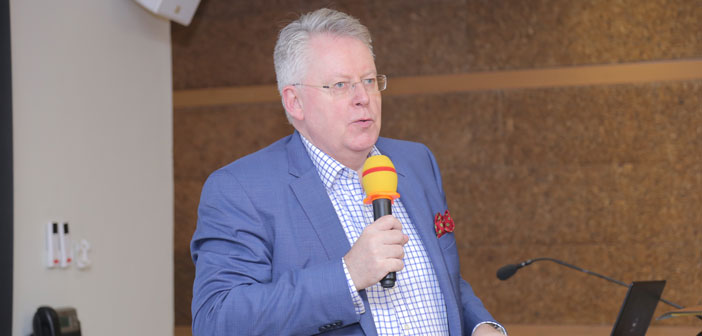
Looking at the state of world affairs, Mr. Limbourg expressed his concern that the election of populist figures in democratic countries, many of whom ride on a wave of fake news, is having a negative impact on free societies that value tolerance and pluralism.
“Populists have always been the ones to push their agenda through fake news, while trolls and bots have unfortunately also played a role in influencing and shaping public opinion,” he warned.
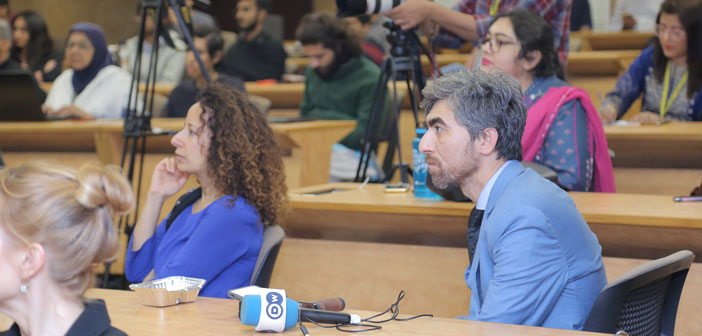
Mr. Limbourg also spoke about the role that social media, including Facebook and Twitter has played in spreading unsubstantiated news and urged that they “have a high responsibility for what is happening on their platform.”
As an example of regulation, Mr. Limbourg gave the example of DW-TV, which though receiving funding from the German State, are not responsible to it. That allows it to maintain its independence and its integrity. As the Director General of DW-TV, Mr. Limbourg said that he always tells his colleagues that, “we are journalists, not activists…even if the cause is a just one we must always maintain our objectivity.”
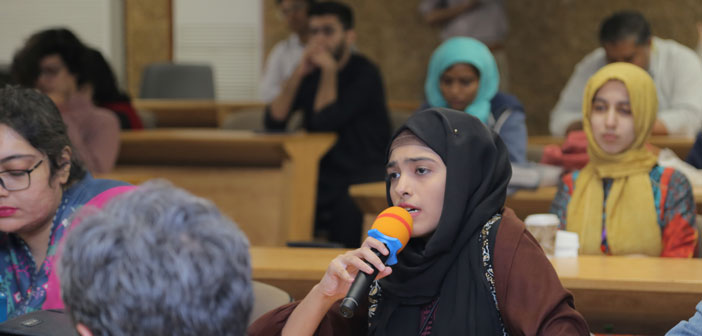
To challenge the spread of fake news, Mr. Limbourg urged people to understand the basics of journalism and never allow personal bias to negate undeniable facts. He stated that since the majority of people get their news online, rather than newspapers and television, they should always question and verify its authenticity, especially if there is no way to substantiate it.
Students at the event were very interested to learn more from Mr. Limbourg, and asked him a number of questions related to his career as a broadcast journalist. One of the questions asked was if it was possible to counter fake news and curb its negative impact on journalism. Other students were curious to know whether the issue of fake news or ‘yellow journalism’ has always been there and it is only now that people are realizing the problem.
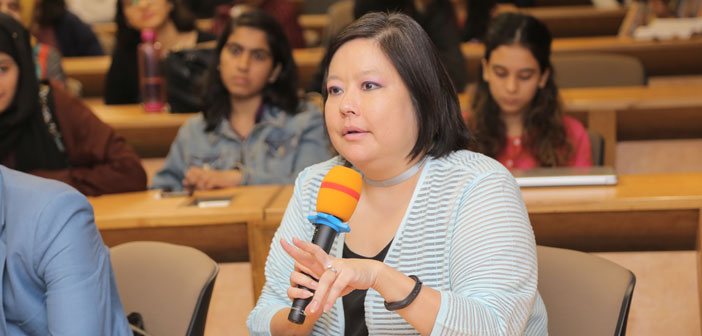
Mr. Limbourg answered all the questions that audience members put to him, urging everyone to value the facts and dismiss all sensationalism regarding news-gathering.
The session was an enlightening one for all those in attendance, as people began to recognize and value the importance of real journalism. Many left the event with a greater appreciation of journalists and other members of the profession that put in great effort to bring to the public actual news, rather than a false narrative laced with sensationalism.

